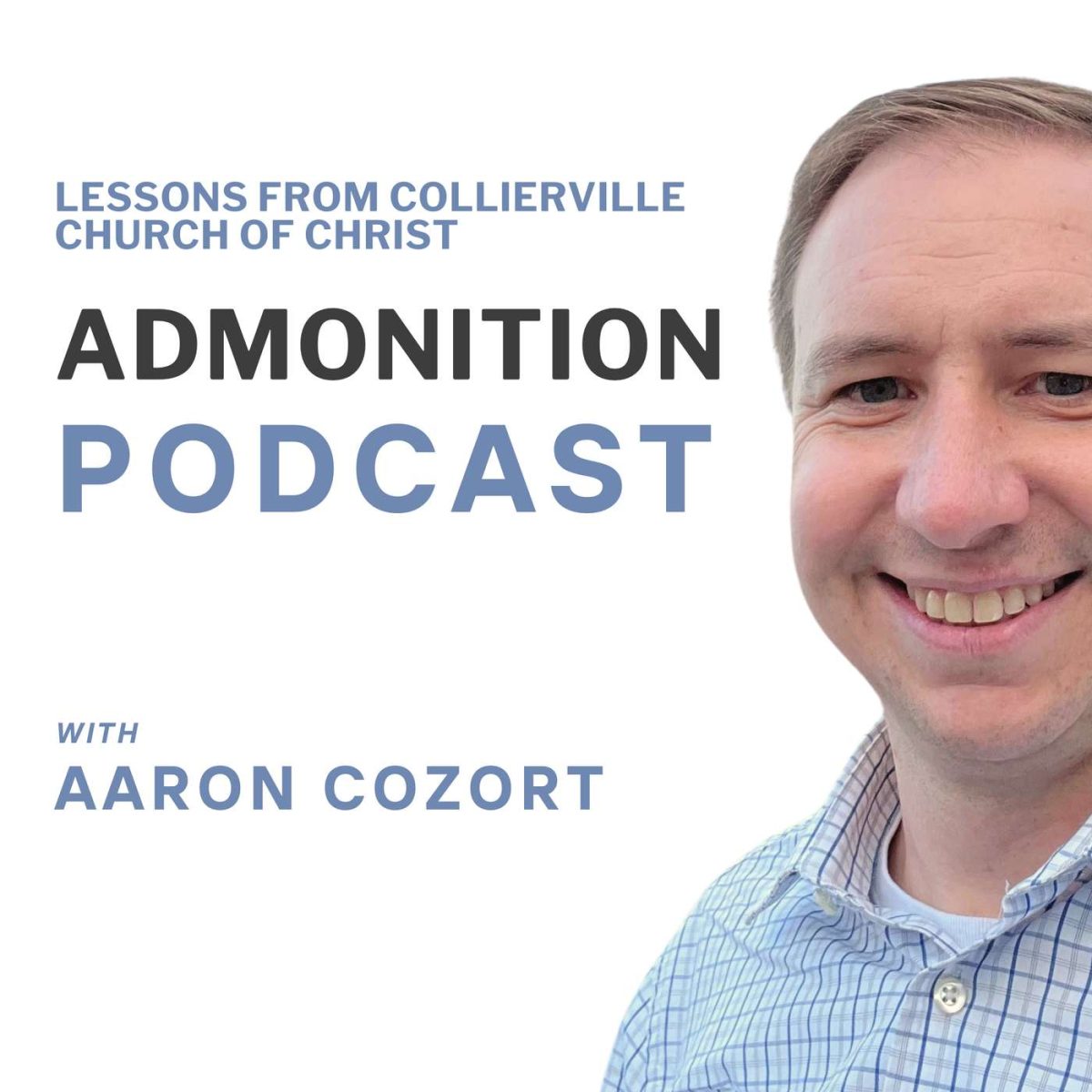In this lesson, Aaron Cozort explores Mark chapter 10, focusing on the topic of divorce and marriage as presented in the Bible. He discusses the context of Jesus’ teachings, the Pharisees’ questioning, and the implications of Moses’ law on marriage. The lesson emphasizes the authority of God in defining marriage and divorce, the cultural influences that distort biblical teachings, and the importance of adhering to God’s standards in contemporary discussions about marriage.Chapters00:00 Introduction and Context of Mark Chapter 1002:49 Understanding Divorce in the Context of the Law05:46 Jesus’ Response to the Pharisees08:56 The Significance of Moses’ Law12:02 The Nature of Marriage and Divorce15:11 God’s Authority in Marriage18:00 Cultural Influences on Marriage Laws20:51 The Importance of God’s Standards24:09 Clarifying Misunderstandings of the Law26:58 The Role of God in Marriage and Divorce30:01 Final Thoughts on Marriage, Divorce, and Culture
Our God Is The Same God – O.C. Woodlee – 10-19-2026
In this lesson, O.C. Woodlee discusses the unchanging nature of God, emphasizing that He is the same in both the Old and New Testaments. He explores how God guides His people, the importance of worship and obedience, and the consequences of disobedience. Woodlee highlights the significance of following God’s commandments and living under the new law established by Christ, ultimately stressing God’s desire for a relationship with humanity and the call to walk in His light.Chapters00:00 The Unchanging Nature of God02:50 God’s Guidance Through History09:50 Worship and Obedience in the Old Testament15:48 Consequences of Disobedience25:18 The Importance of Following God’s Commandments32:14 Worshiping in Spirit and Truth38:19 God’s Desire for Relationship
Aquila and Priscilla: A Faithful Couple – Aaron Cozort – 10-19-2025
This lesson explores the lives of Aquila and Priscilla, a faithful couple in the New Testament, highlighting their journey, their role in the early church, and their mentorship of Apollos. It emphasizes their unwavering commitment to service, their willingness to adapt to changing circumstances, and their legacy of faithfulness and support for the gospel.Chapters00:00 Introduction and the Importance of Opportunities05:06 The Life and Lessons of Aquila and Priscilla09:57 Faithfulness in Service and Support15:08 Teaching and Mentoring: The Role of Aquila and Priscilla19:47 Risk and Sacrifice for the Gospel25:13 The Legacy of Aquila and Priscilla30:00 Conclusion: A Call to Faithfulness and Service
1 Timothy 6 (Lesson 5) – Aaron Cozort – 10-19-2025
In this lesson, Aaron Cozort leads a reflective discussion on the nature of God, the limitations of human understanding, and the responsibilities that come with wealth. Through prayer and scriptural references, he emphasizes the importance of humility, trust in God over material riches, and the need for Christians to act benevolently with their resources. The lesson culminates in a reminder of the eternal perspective that believers should maintain in their lives.Chapters00:00 Opening Prayer and Reflection01:46 Understanding the Nature of God09:32 The Limitations of Human Understanding18:37 The Power of God vs. Human Authority21:40 Wealth and Humility in the Christian Life29:26 Trusting in God Over Riches40:51 The Responsibility of Wealth46:55 Closing Thoughts and Final Admonitions
Mark 9 (Lesson 5) – Aaron Cozort – 10-15-2025
In this lesson, Aaron Cozort explores Mark chapter 9, focusing on themes of authority, humility, acceptance, and the consequences of our actions as followers of Christ. Through a detailed examination of Jesus’ teachings, he emphasizes the importance of recognizing the authority of others, the dangers of causing others to stumble, and the necessity of self-examination in our spiritual lives. The lesson culminates in a reminder of the eternal consequences of our actions and how they reflect our relationship with Christ.Chapters00:00 Introduction and Opening Prayer02:12 Discussion on Authority and Miracles11:42 The Importance of Humility and Acceptance18:08 Warnings Against Causing Others to Stumble23:44 Self-Examination and Personal Responsibility31:27 The Eternal Consequences of Our Actions
Our God Is Alive – Jacob Kennedy – 10-12-2025
In this lesson, Jacob Kennedy explores the existence of God through various arguments and evidence. He discusses the significance of creation, prophecy, miracles, and moral standards as proof of God’s existence. The lesson emphasizes the importance of recognizing God as the designer of the universe and challenges listeners to consider their personal relationship with God.Chapters00:00 The Existence of God: An Introduction03:07 The Evidence of Creation05:50 Prophecy as Proof of God’s Existence10:00 Miracles: Demonstrating God’s Power16:00 The Moral Argument for God’s Existence24:07 The Teleological Argument: Design in Nature32:01 Conclusion: Is God Your God?
Challenging The Norm With Enemies – Aaron Cozort – 10-12-2025
In this lesson, Aaron Cozort discusses the transformative power of love, particularly in the context of dealing with enemies. He emphasizes the teachings of the Old Testament and Christ, advocating for a love that is inclusive and unconditional. Cozort challenges the listener to reflect on the nature of love and the importance of extending kindness even to those who may not reciprocate it, highlighting the radical call of Jesus to love beyond societal norms.Chapters00:00 Introduction and Farewell to Visitors00:48 The Test of Genuine Discipleship
1 Timothy 6 (Lesson 4) – Aaron Cozort – 10-12-2025
In this lesson, Aaron Cozort explores the teachings of Paul in 1st Timothy chapter 6, contrasting the pursuit of wealth with the pursuit of godliness. He emphasizes the importance of living a blameless life, the sovereignty and immortality of Christ, and the significance of approaching God in prayer. The lesson highlights the call to righteousness and the understanding of God’s holiness as unapproachable light, encouraging listeners to reflect on their relationship with God and their priorities in life.Chapters00:00 Introduction and Prayer02:06 The Contrast of Wealth and Godliness04:01 The Call to Righteousness and Blamelessness09:53 Understanding Godliness in Daily Life15:00 The Authority and Glory of Christ20:10 Christ as the Sovereign Ruler25:14 The Immortality of Christ30:00 The Unapproachable Light of God44:59 Conclusion and Reflection
Mark 9 (Lesson 4) – Aa… | Oct 09, 2025 008
In this lesson, Aaron Cozort explores the themes of value and connection as presented by Jesus, emphasizing the contrast between societal status and the purity of childhood. He challenges conventional beliefs about what truly matters in life, highlighting the deeper connections that exist beyond wealth and influence.Chapters00:00 Opening Prayer and Introduction00:47 Living in a Spiritual Kingdom
Lessons On A Good Life… | Oct 7, 2025 010
In this lesson, Aaron Cozort explores the life of Dorcas (Tabitha) from the book of Acts, highlighting the lessons we can learn about living a good life. He emphasizes that a good life is characterized by purpose, good works, and the impact one has on others. Cozort discusses the inevitability of suffering, the importance of goodwill, and how a life lived in faith can lead to conversions. Ultimately, he encourages listeners to reflect on their own lives and the legacy they are building.Chapters00:00 Introduction to Dorcas: A Life of Purpose13:44 Lessons from Dorcas: The Impact of a Good Life








